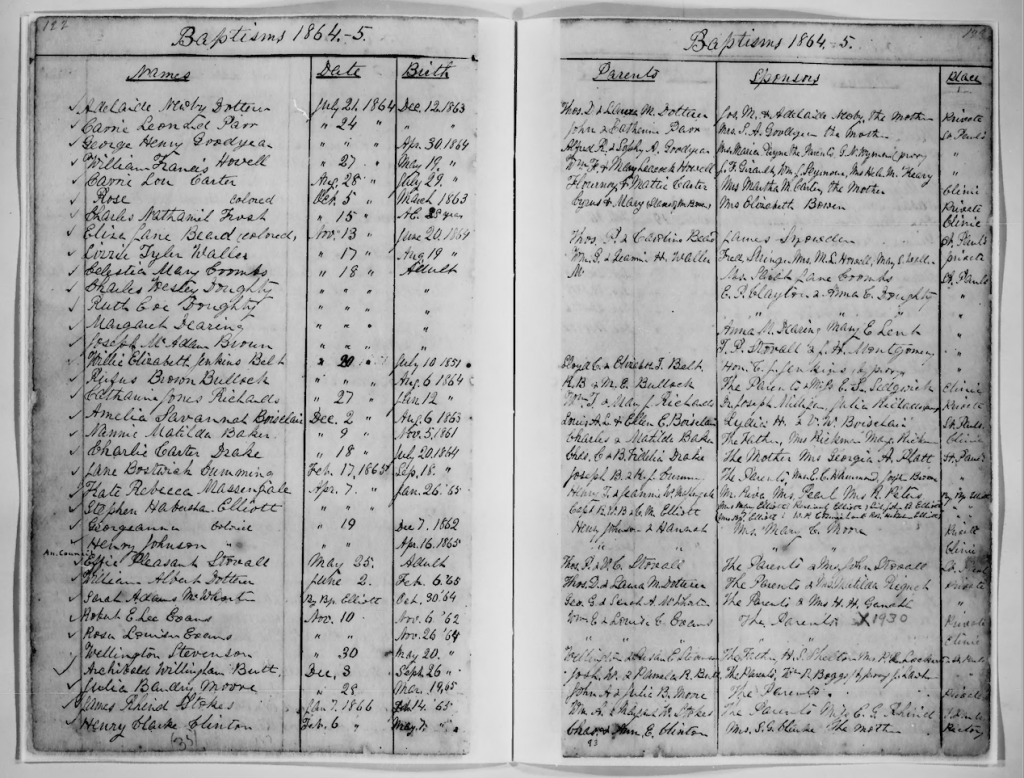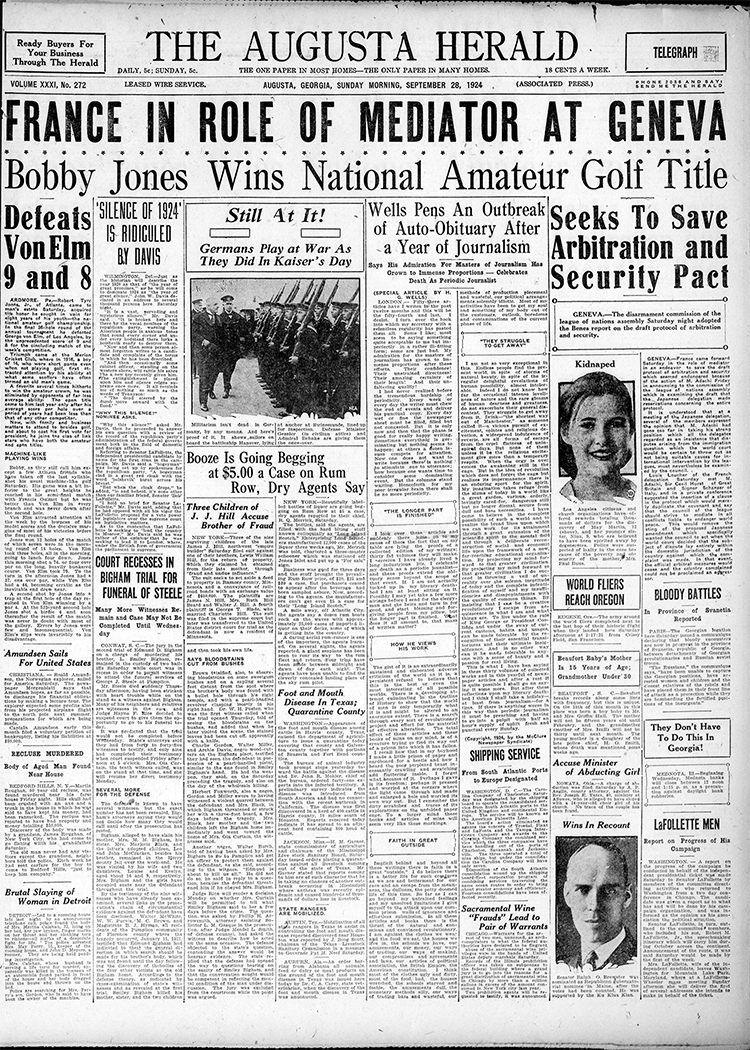The Digital Library of Georgia recently worked with Susan Yarborough to add a collection of documents from Saint Paul’s Church, Augusta, Georgia. Founded in 1750, Saint Paul’s is a parish of the Episcopal Diocese of Georgia and the first church and formal institution established in Augusta. The DLG collection includes church registers from 1820 to 1937, minutes of the Vestry from 1855-1923, early church histories, and miscellaneous documents related to the church and diocese history.
Yarborough, chair of the church’s History Committee, notes that Saint Paul’s is still an active church. “Our archives are part of the church’s daily life and play a role in our governance, building maintenance, and even our worship. At the same time, we have a responsibility to the larger community to make available those resources with historical significance.”
“The earliest entries in the oldest Saint Paul’s register are more than two centuries old. Our historic materials are valuable but also fragile. They’ve held up beautifully because they are not regularly handled. Digitization is the best way to make it possible for historians to examine these precious records.”
“The early church registers record baptisms, confirmations, marriages, and funerals of church members, including enslaved and free people of color. Many history queries we get at Saint Paul’s have to do with genealogy. So having the registers hosted by DLG allows genealogists and family historians to go directly to the source. They can also explore more than one family name at a time. Plus, they have almost unlimited access, which would not be possible otherwise.”
“At Saint Paul’s, we are so pleased that DLG saw the potential of this material and awarded us the subgrant to digitize and host it. Many local institutions do not have the expertise or funding to make their historical documents widely available. I really appreciate the way DLG simplifies the sub-grant application process. They provide guidance with model applications and on-line coaching, and DLG staff are happy to answer questions by phone or email.”
“Best of all is the satisfaction of knowing that Saint Paul’s materials are now freely available to teachers, students, and public library users. DLG helps bridge the digital divide for those who rely on schools and public libraries for their research needs. It is so important for people’s understanding of their lives and worlds to have access to information about their family and community histories.”

St. Paul’s Church of Augusta Collection
Holding Institution: St. Paul’s Church (Augusta, Ga.)
https://dlg.usg.edu/record/spcag_spcagc_spc14
Yarborough has selected Page 122 from the Parish Register of Saint Paul’s Church for 1864 (this is page 50 of the PDF available for Parish register, 1820-1868), which shows the baptismal records for Rose, a daughter born to Cyrus and Mary, the slaves of Mrs. Elizabeth Bowen, who is serving as baptismal sponsor. Two rows below is the baptismal record for Elisa Jane Beard (colored), daughter of Thomas P. and Carolina Beard, who were free persons of color. In 1868, Thomas P. Beard would become the first African American from Augusta to be elected to the Georgia House of Representatives.
Further down the same page is the baptismal record of Col. Archibald Willingham Butt (1864-1912), a military aide to Presidents Theodore Roosevelt and William H. Taft, who died on the Titanic when it sank. He is recorded as having threatened to kill any man who tried to board the lifeboats before the women and children were rescued. Yarborough adds: “That’s probably folklore, but it is a thrilling story.” Circumstantial evidence suggests that Col. Butt was gay. Augusta’s Butt Memorial Bridge, which routes 15th Street over the Augusta Canal, is dedicated to his memory.


